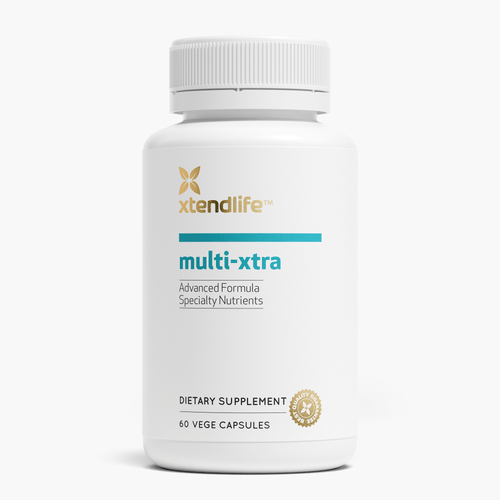Modern science is slowly but surely coming to the same conclusion. Indeed, research now indicates how the abundant antioxidants and phenol in herbs and spices may “have multiple effects supporting the cardiovascular system (ref. 1). They appear to do this by helping to support your body’s ability to manage damage and imbalances caused by high levels of blood sugar, triglyceride concentrations and circulating lipids.
Research About Spice
An article by World of Nutrition (ref. 2) summaries the findings from a variety of research papers describing the effects that spices and herbs may have on Cardio Vascular conditions. Details of these findings can be seen in Nutrition Today (ref. 3)
The key study was conducted by Penn State nutritionists. They prepared meals on two separate days for six men aged between 30 and 65 who were overweight, but otherwise healthy. The meals were identical—consisting of chicken, bread and a dessert biscuit—except that the researchers added two tablespoons of a high-antioxidant spice blend to the test meal. This blend included garlic powder, rosemary, oregano, cinnamon, cloves, paprika, turmeric, ginger and black pepper.
For the next three hours after each meal, blood was regularly drawn from the study participants. The results showed that antioxidant activity in the blood increased by 13% in the men who ate the test meal versus those in the control group. Also for all the men taking the test meal, triglyceride levels reduced, for some, by as much as 30% (Triglyceride levels normally rise after eating a meal with fat in it)
The nutritionists commented: “The metabolic effects of spices and herbs and their efficacy and safety for CVD relative to traditional drug therapy, represent an exciting area for future research given the public health significance of cardiovascular disease"
These nutritionists also reviewed three categories of studies -- spice blends, cinnamon and garlic to assess the heart health effects.
The Garlic Studies
The garlic studies reviewed were inconclusive. This may be because the trials had a wide range of garlic doses, from 9 mg of garlic oil to 10 grams of raw garlic. However the results were significant enough for the researchers to note that across the studies, there was an 8% decrease in total cholesterol with garlic consumption. They associated this with a decrease in the risk of heart problems in 50-year-old adults. Though they didn’t explain how they came up with that association!
An earlier Cardiology Review publication (ref. 4), further illustrates how several studies appear to show the positive effects of garlic on cardiovascular health. The authors commented that “Several epidemiologic studies have indicated that certain diets are associated with low risk of cardiovascular disease and that these diets are rich in fruits, vegetables, herbs and spices; the common spice among them is garlic.”
This same Cardiology Review also shows studies describing how herbs and spices (in addition to garlic) appear to have a beneficial cardiovascular effect.
Five Other Healthy Spices
1. Curcumin (turmeric)
This may have antioxidant properties that help to support healthy cholesterol and triglyceride levels.
2. Ginger (gingerol)
Gingerol may help to relax blood vessels, stimulate blood flow and relieve discomfort. Other potentially active compounds present in ginger may help with healthy inflammation management.
3. Black pepper (piperine)
Piperine appears to have important antioxidant and immune supporting benefits which may help to reduce toxicity, and to help maintain healthy cholesterol levels
4. Cinnamon
Cinnamon with its antioxidant qualities may help to support cardio health.
5. Coriander
Coriander has been used in the past to support the health of people needing support for cholesterol imbalances and pancreatic function. Some studies have indicated that the seeds of coriander appear to help to suppress the level of lipids and lipoproteins in the blood. Lipoproteins bind cholesterol and can accumulate in blood vessels. High levels of specific lipoproteins, namely, low-density lipoprotein (LDL) and very low-density lipoprotein (VLDL), have been associated with an elevated risk of certain forms of cardiovascular conditions.
Feeds Your Cells
With quality bioavailable vitamins, minerals, nutrients, antioxidants & herbs to help promote optimal health.
Shop now
There is evidence supporting the contention that certain herbs and spices boost heart health and overall wellness. That’s why we have included several of the above, and many more effective ingredients in our supplement products.
I’m sure you’ll agree that adding some herbs and spices to your life is a simple, cost effective way to boost your heart and overall health. It’s delicious too! If you have any favorite herb/spice concoctions which have benefited your health, please do share these.
References:
- These researchers show the multiple effects of herbs and spices in modulating the cardiovascular system: Frishman HW, Sinatra TS, Moizuddin M. Semin Integr Med. 2004;2:23–35.
- The article by World of Nutrition is can be found at this URL: http://worldofnutrition.supplysideinsights.com/heart-health/News/2014/11/Herbs-Spices-Enhance-Heart-Health.aspx
- The findings from a variety of research papers describing the effects that spices and herbs have on CVD can be seen at the Nutrition Today, 2014; 49 (Supplement): S8 DOI: 10.1097/01.NT.0000453846.91592.ca by Sheila G. West, Ann C. Skulas-Ray. Spices and Herbs May Improve Cardiovascular Risk Factors.
- For the study on “Indian Spices for Healthy Heart - An Overview” can be found at this URL: http://www.ncbi.nlm.nih.gov/pmc/articles/PMC3083808/


 Supplements
Supplements Skincare
Skincare Superfoods
Superfoods Bundles
Bundles














Leave a comment (all fields required)